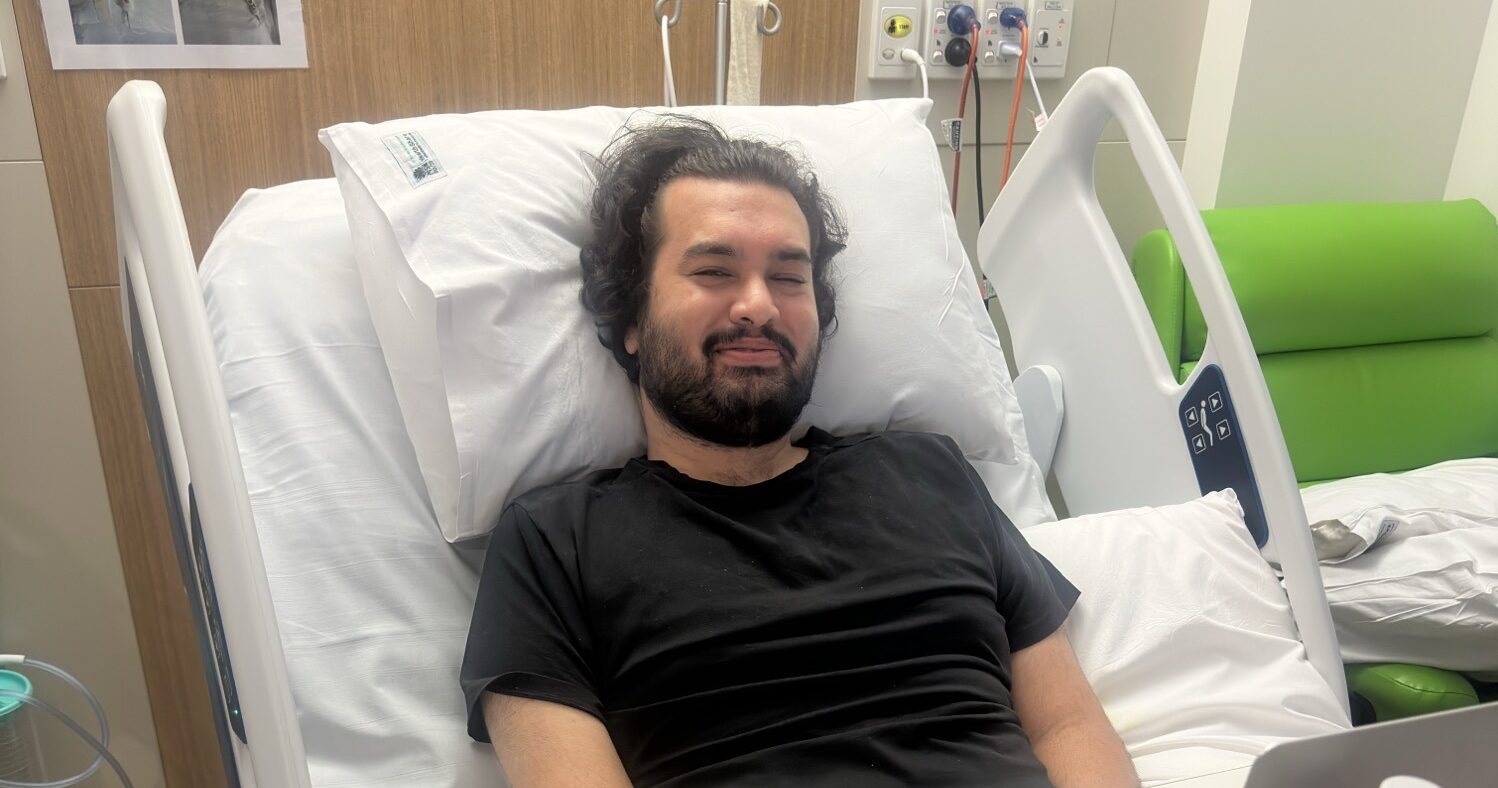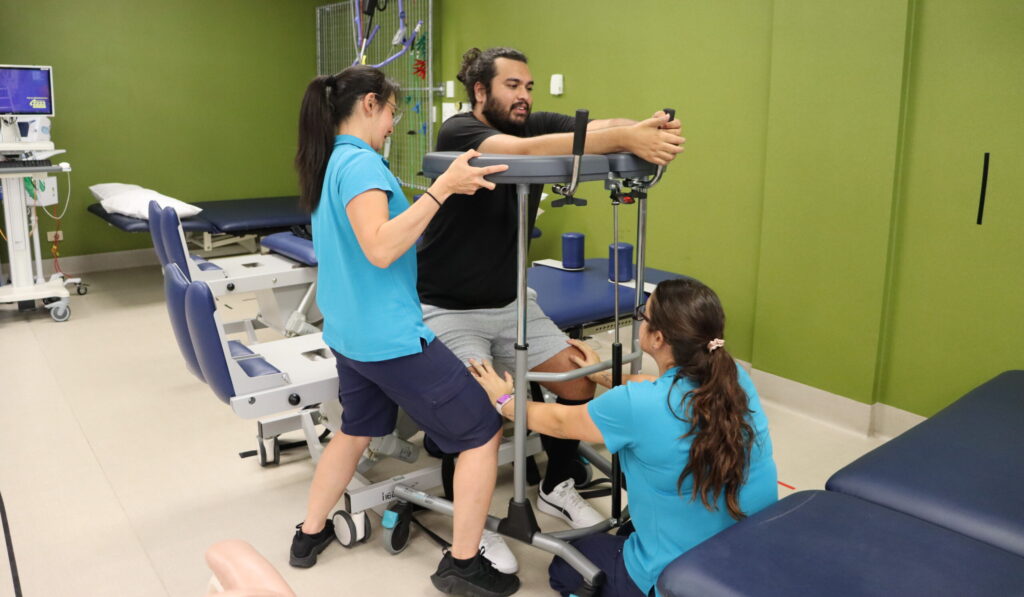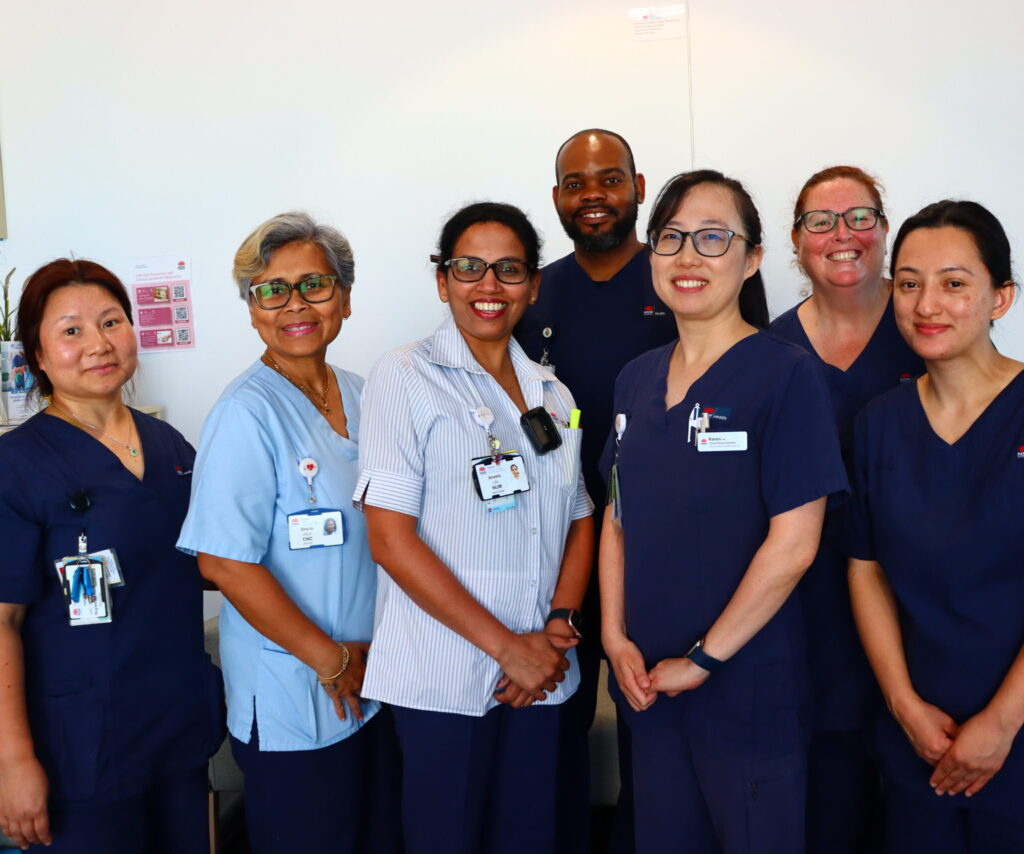
At just 29 years old, Rohail was living a full and active life – working as a civil engineer in the construction industry, newly married, regularly going to the gym and playing cricket. Then everything changed.
What began as a simple throat infection quickly escalated. Within a week, Roh noticed one side of his face had dropped.
A sudden onset of Guillain-Barré syndrome
By the time he arrived at Ryde Hospital, he could barely stand. He was rushed to Royal North Shore Hospital (RNSH) where he was diagnosed with Guillain-Barré syndrome (GBS) – a rare autoimmune disease that causes rapid muscle weakness and paralysis.
Approximately 2-8 in every 100,000 Australians will develop GBS.
Those between the ages of 30-50 have the highest chance of developing this condition.
For the next two weeks, Roh was heavily sedated in the Intensive Care Unit (ICU). When he woke up, he was completely paralysed. He couldn’t move, eat, speak, or even breathe on his own and could only communicate through blinking and eye gaze. Understandably, it took a while for Roh to accept, but that was his reality for the next four months.
His wife, Hanieya, says the hardest moment was seeing her once-strong husband unable to move.
Tests diagnosed Roh with the most severe form of GBS, known as Acute Motor Axonal Neuropathy, and he was treated with a course of plasma exchange.
Life in the ICU: paralysis and hope
Thanks to the expert care of the ICU Nurse Practitioner team and the dedicated intensive care team at RNSH, Roh began to regain strength. Slowly, he moved a finger. Then his neck.
Katie Kelleway is one of the ICU Nurse Practitioners who case-managed Roh during his stay. “Once Roh gained some strength in his diaphragm,” said Katie, “we began to wean him off the ventilator and encouraged him to breathe on his own.”
While in the ICU, he says the nursing staff made sure he felt the festive spirit. They decorated his room and ensured he was included in the planning.
“Even though I was only able to eat soft foods, it was a milestone in my recovery. I enjoyed the freshly baked treats at Christmas time!”
Roh says all the nurses in the ICU were amazing and would drop into his room for a chat. He recalls their incredible level of attention and care and says they were genuinely happy to see his progress and cheered any small step forward he made. During the festive season, Roh wanted to surprise his wife for their anniversary, and he says the staff went out of their way to help him.

Rehabilitation at Graythwaite: regaining independence
After spending four months in the ICU recovering from GBS, Roh was moved to the neurological ward at RNSH in December under the care of Dr Christina Liang. The following month, he was transferred to Graythwaite Rehabilitation Centre at Ryde Hospital, which provides comprehensive inpatient rehabilitation for patients recovering from illness.
Roh commenced an intensive recovery program for five days a week, up to six hours a day. His daily routine included physiotherapy in both the pool and gym. He says his hard work has led to a significant improvement in his mobility and independence.
“I had to relearn how to do everything and the bulk of my recovery started once I was at Graythwaite,” said Roh. “I’m now close to home and Hanieya can visit me every day.”
Physiotherapist Jillian Chua says that Roh has been on a long journey, and the physiotherapy team are very proud of how far he has come.


Ten months later, he can propel himself in a wheelchair, transfer in and out of his own car and take his wife out to the movies or dinner. He says he’s lucky she is by his side as she’s helped his mental health enormously and kept him focused and grounded. His aim is to be able to go home after a year at Graythwaite but continue his physiotherapy as an outpatient.
“Many people have played their role in my recovery from GBS. I’m extremely grateful to each and every one of them.”
Roh’s story is one of resilience, love, and exceptional patient care.
Please donate to the NORTH Foundation today and help transform lives and bring hope to patients and families when they need it most.
